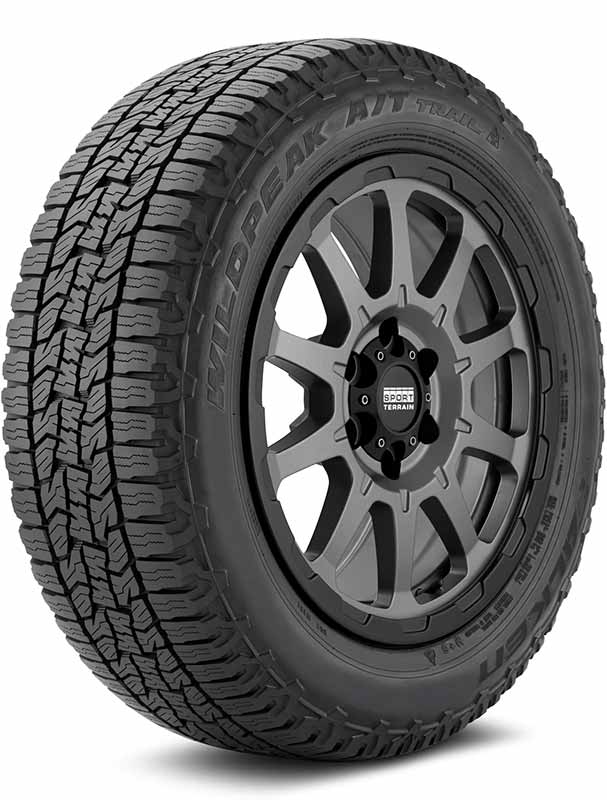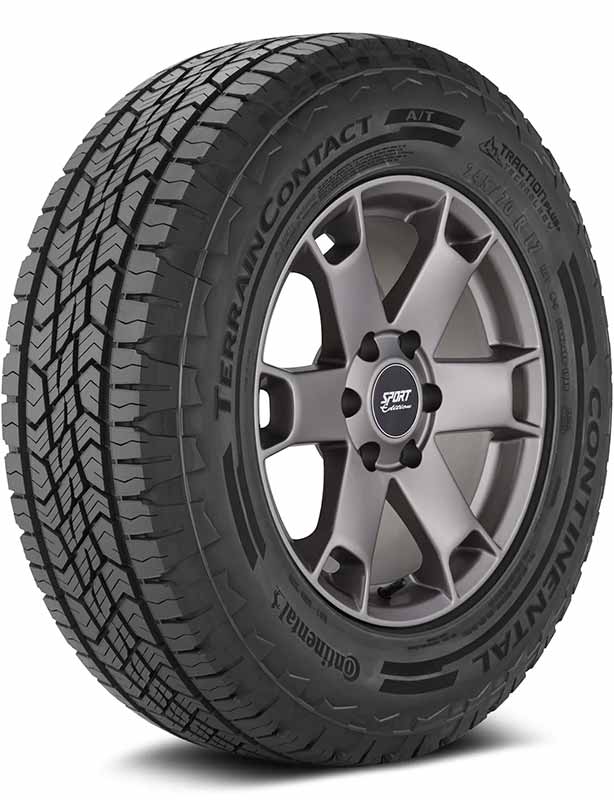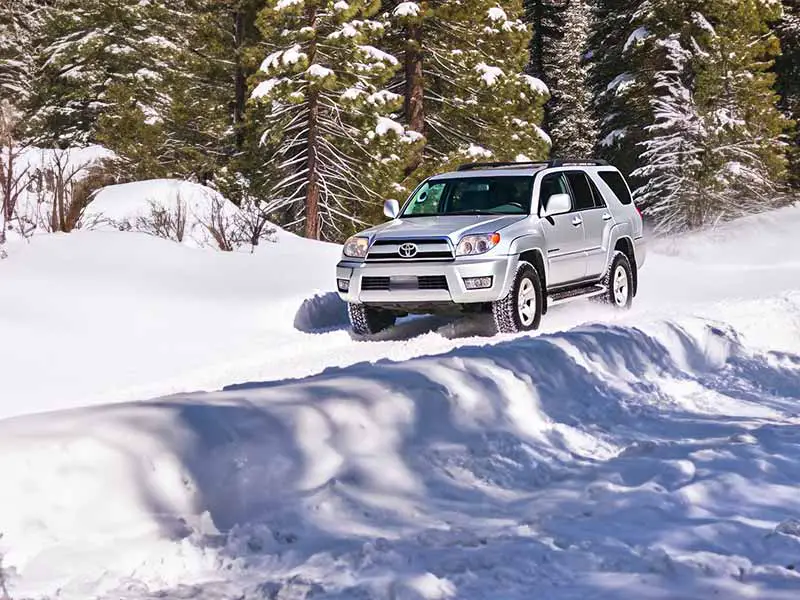Tires are expensive and uneven tire wear can drastically reduce the usable life of the tires on your car or truck. Not everyone will have problems with significant uneven tire wear. But some people will experience more wear on their tires than others.
No matter your circumstances, the benefits of regular tire rotation help tires last longer and ride more smoothly.
What Happens If You Never Rotate Your Tires?
Two important problems happen if you never rotate your tires. Your tire mileage warranty will be void and your tires will not last as long as possible, which costs you money.
If you have tire balance or alignment issues, you can end up with tire noise, vibrations, and even poor traction if the problems are severe enough.
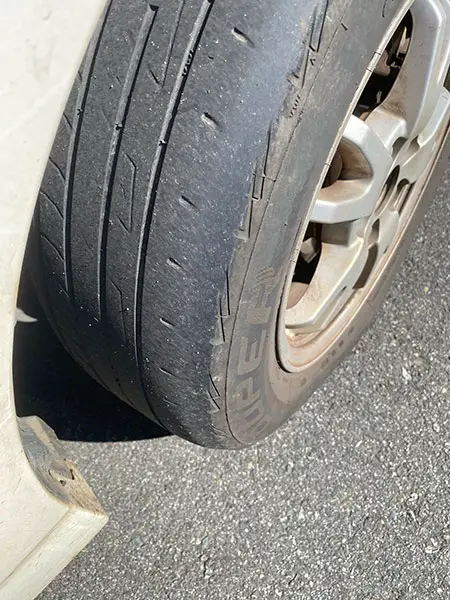
It doesn’t usually cost much if anything to have your tires rotated along with another vehicle maintenance service. But often people still neglect to have a tire rotation performed.
How Often Should You Rotate Your Tires?
Tires should be rotated at or before the mileage required by your tire manufacturer to maintain your warranty. This is usually between 5,000 and 8,000 miles but you should refer to the paperwork provided with your tires.
More frequent tire rotation is better but rotating tires more than every 5,000 miles is not likely to be worth the extra effort. It won’t hurt anything though so if you are having another maintenance service performed, it makes sense to go ahead and have your tires rotated.
It is important to try to keep the mileage between tire rotations fairly even to ensure more consistent tire wear, but differences of 1,000 miles or so will not likely make enough difference to be worth fretting over.
Is Tire Rotation Necessary?
Tire rotation is necessary to maintain your tire warranty. It is also important to help ensure that your tires wear evenly and last as long as possible, which is why tire manufacturers require it.
The disadvantages of not rotating the tires of your car or truck are not so severe that it should be mandatory. Ultimately, if you decide to not rotate your tires regularly it will shorten the life of your tires which are not inexpensive.
You can also end up with louder tires and steering wheel vibrations which can be a minor annoyance or potentially cause poor traction in some conditions if they wear unevenly enough.
Is It Bad To Not Rotate Your Tires?
There are many people that do not rotate their tires and trade some tire life and money for what they probably perceive as a fairly unnecessary task.
There really aren’t any reasons to not have your tires rotated though. Tire rotation can usually be performed for free with other maintenance services by your local mechanic or car dealership. Since other services will need to be occasionally performed and tire rotation, even if not free is very inexpensive, is worth the benefits it provides.
Regularly rotated tires will not only last longer but ride smoother. Plus maintaining your tire warranty can be a huge benefit if you happen to own a vehicle with a more aggressive suspension geometry that is harsher on your tires. Sports cars are a common example of this situation.
Despite how poorly your car or truck may wear down the tires, the mileage warranty will still be honored as long as you have the tires rotated according to the tire manufacturer’s requirements and meet any other tasks that are necessary.
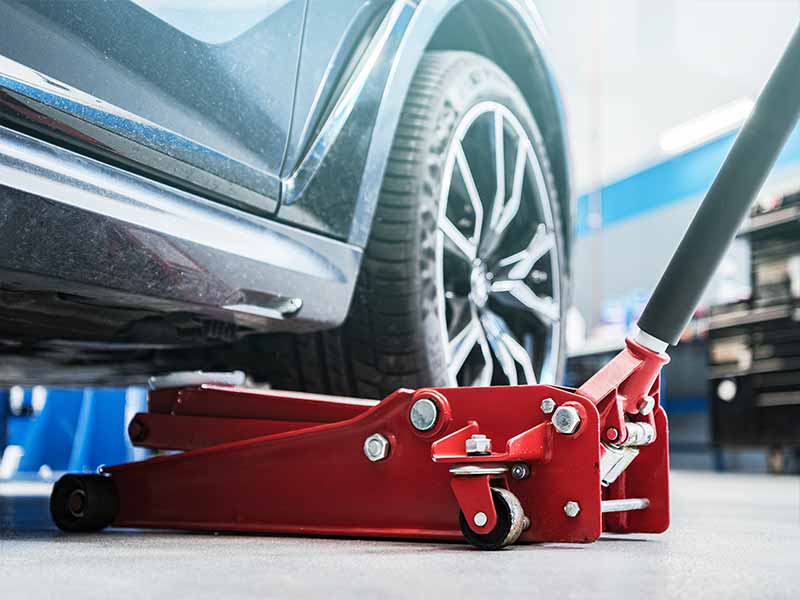
How Long Can You Go Without Rotating Your Tires?
You can only avoid rotating your tires as long as the tire warranty requirement allows. Maintaining your tire warranty is one of the biggest benefits of tire rotation.
Many people never rotate tires and aside from not being able to make a warranty claim, don’t notice much uneven wear, experience much steering wheel vibration, or have excessive tire noise.
What Happens When You Don’t Rotate Your Tires?
If you don’t rotate your tires, you will void your tire warranty and shorten the life of your tires.
Other problems that can occur if you don’t rotate your tires are unevenly worn tires. This can cause tire noise, steering wheel vibrations, and even traction problems if the uneven wear is very bad.
When you have regular tire rotation services done, someone will be inspecting your front and rear tires for problems such as unevenly worn tires, tire and wheel damage from potholes and curb strikes, and low tire pressure.
These issues can lead to serious problems if not detected early. Uneven tires can be a sign of an alignment or tire balance problem. Correcting these problems before too much uneven wear has occurred can prevent you from ruining your tires.
How Long Will Tires Last If Not Rotated?
Tires are guaranteed to last a specific number of miles by the tire manufacturer if they are rotated. A reasonable amount of mileage loss to expect if you don’t rotate your tires is 25% less than the guaranteed mileage.
This amount will vary widely for many reasons though. Sports cars driven aggressively, for instance, will likely see much more significant reductions than a family sedan that is driven extremely conservatively.
It’s possible you will be able to get to the guaranteed mileage without having your tires rotated. However, this probably means that you would’ve been able to achieve even higher mileage if your tires had been rotated regularly.
Front Wheel Drive Vehicles
Front wheel drive cars benefit the most from regular tire rotation. The front tires wear very quickly due to them taking the abuse of both acceleration and steering. This wear is usually fairly uneven due to the various wheel alignment settings that are designed to improve handling and stability.
Front wheel drive car tires can last much longer if regularly rotated and well worth making sure you have a tire rotation performed when you take your vehicle in for various services.
The forward cross is the most effective rotation pattern to use for most front wheel drive vehicles.
Rear Wheel Drive Vehicles
Rear tires wear more quickly on a rear wheel drive car or truck. This is especially true for performance tires on sports cars. While the rear tires aren’t responsible for steering, they still take quite a bit of abuse in cornering.
When you rotate your tires regularly you help distribute the tires that wear unevenly to positions that can better take advantage of the portions of the contact patch that have less used tread wear.
The rearward cross is the most effective rotation pattern to use for most rear wheel drive vehicles.
All Wheel Drive Vehicles
All wheel drive cars and trucks do the best job of distributing tire wear to all four tires, but the wear patterns at each corner are still uneven and the vehicle’s tires can last longer if rotated on a regular schedule.
Suspension geometry differences between front tires and rear create very different types of wear no matter which axle is driven. Rotation patterns that include front to rear swaps greatly help get the most life out of your tires.
The X-pattern is the most effective rotation pattern to use for most all wheel drive vehicles.
Final Thoughts
Tire rotation is a standard part of regular tire maintenance. Tires tend to wear unevenly on every vehicle. To avoid uneven tires and the problems that come with uneven tires, car owners should be sure to have their tires rotated according to the tire manufacturer’s specifications.
Not only will tires that are rotated according to the tire manufacturer’s requirements last longer, but they tire warranty will be honored if a claim is made.
Resources
Below are some links you may find helpful when learning about tires

